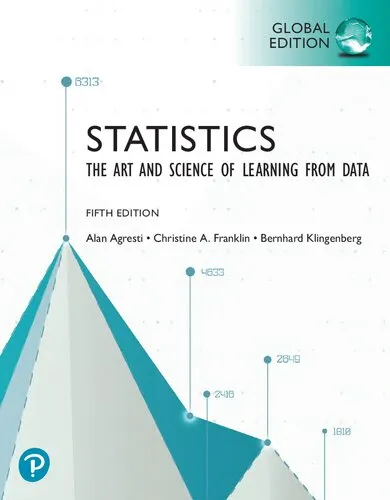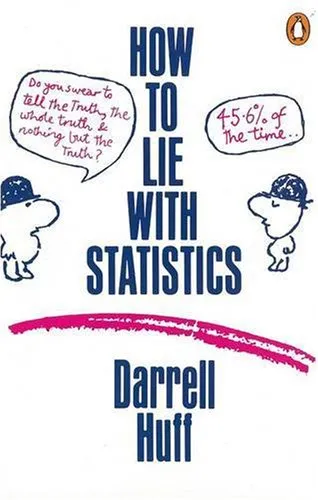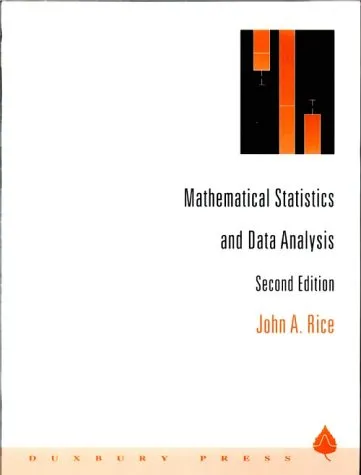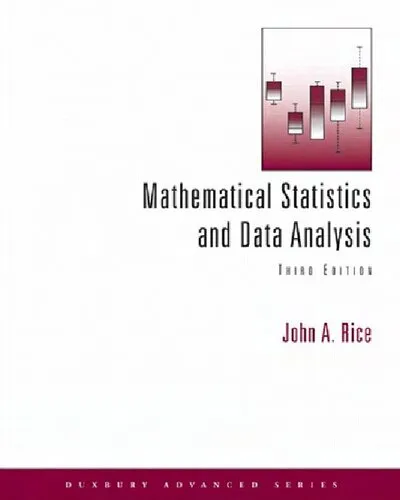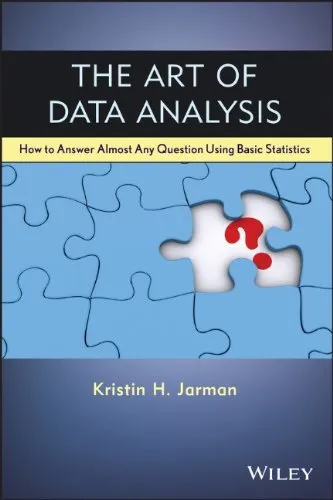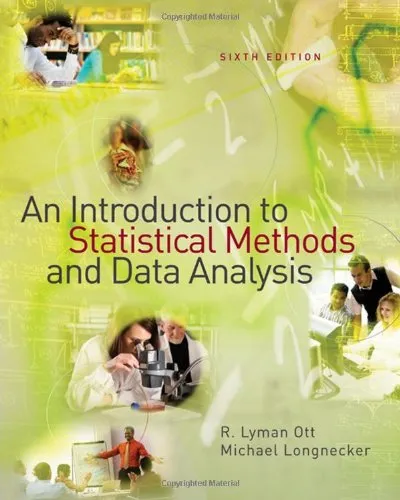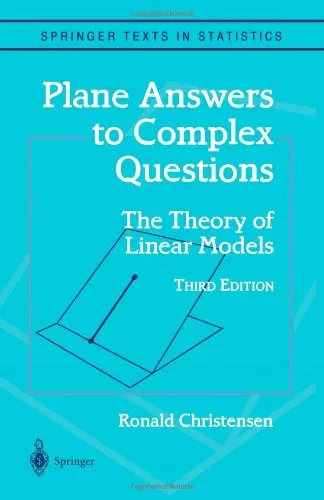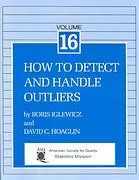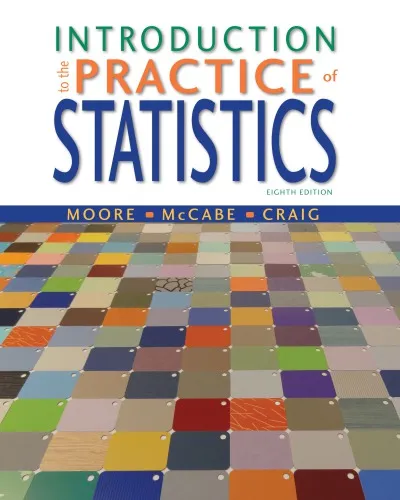Analysis of Poverty Data by Small Area Estimation
4.9
بر اساس نظر کاربران

شما میتونید سوالاتتون در باره کتاب رو از هوش مصنوعیش بعد از ورود بپرسید
هر دانلود یا پرسش از هوش مصنوعی 2 امتیاز لازم دارد، برای بدست آوردن امتیاز رایگان، به صفحه ی راهنمای امتیازات سر بزنید و یک سری کار ارزشمند انجام بدینکتاب های مرتبط:
معرفی کتاب: تحلیل دادههای فقر با رویکرد Small Area Estimation
کتاب تحلیل دادههای فقر با استفاده از Small Area Estimation به قلم مونیکا پراتزی، یکی از منابع پیشرو در زمینه تخمینهای آماری برای تحلیل دادههای فقر در مقیاس مناطق کوچک محسوب میشود. این کتاب به شکل تفصیلی نحوه استفاده از تکنیکهای پیشرفته آماری و مدلسازی را در تحلیل دادههای اقتصادی ـ اجتماعی بررسی کرده و برای پژوهشگران، متخصصان و سیاستگذاران منبعی بینظیر ارائه میدهد.
خلاصهای از کتاب
کتاب با مرور کلی بر ضرورت استفاده از تکنیکهای Small Area Estimation (SAE) آغاز میشود. این روشها برای تحلیلی دقیقتر از دادههایی که در آن حجم نمونهها در سطح مناطق کوچک محدود است، اهمیت ویژهای دارند. سپس مولف به نوع خاصی از دادههای فقر، چالشهای مربوط به جمعآوری این دادهها و کاربرد مدلهای آماری همچون مدلهای Fay-Herriot و Model-based Estimation اشاره میکند.
این کتاب ساختاری منظم دارد و در چندین بخش کلی، مفاهیم پایه، روشهای پیشرفته و کاربردهای عملی SAE در دادههای واقعی را پوشش میدهد. علاوه بر این، نمونههای موردی از کشورهای مختلف برای فهم بهتر تکنیکهای بیان شده در کتاب آورده شده است. طراحی این کتاب به گونهای است که حتی برای خوانندگانی که سابقه چندانی در زمینه SAE ندارند، قابل درک و مفید باشد.
نکات کلیدی
- توضیح کامل از روشهای آماری و مدلهای کاربردی در Small Area Estimation.
- تمرکز ویژه بر نحوه کاربرد این روشها در تحلیل دادههای فقر.
- بررسی چالشهای موجود در تخمینهای آماری و ارائه راهحلهای عملی.
- مطالعات موردی از استفاده واقعی تکنیکهای SAE در جوامع مختلف.
جملات مشهور از کتاب
“The complexity of poverty analysis demands advanced statistical methods to ensure accuracy on smaller geographical scales.”
“Small Area Estimation bridges the gap between macro-level statistics and community-level accuracy, empowering informed decision-making.”
چرا این کتاب اهمیت دارد؟
اهمیت این کتاب در استفاده از ابزارهای آماری مدرن برای بینشهای دقیق و مفید در زمینه فقر نهفته است. با توجه به این واقعیت که بسیاری از تصمیمهای سیاستگذاری مبتنی بر دادههای ناکامل یا تخمینهای غیر دقیق است، این کتاب رویکردی علمی و عملی برای بالابردن دقت نتایج آماری ارائه میدهد. در دنیای امروز که دادهها پایه اصلی تصمیمگیری هستند، کتاب مونیکا پراتزی درک عمیقتری از چگونگی تحلیل درست دادهها را فراهم میکند.
Introduction to 'Analysis of Poverty Data by Small Area Estimation'
The book ‘Analysis of Poverty Data by Small Area Estimation’, written by Monica Pratesi, serves as a comprehensive guide for understanding innovative methodologies to assess poverty at granular levels. In an era where policymakers and organizations are striving to implement efficient poverty alleviation programs, this book provides a robust statistical framework to aid decision-making through small area estimation techniques.
Small area estimation (SAE) methods are designed to address the challenges of obtaining reliable data for small geographic or demographic domains where traditional survey methods may fall short. By combining a strong theoretical foundation with practical applications, this book effectively bridges the gap between technical research and policy implementation. It is a valuable resource for statisticians, researchers, social scientists, and policymakers aiming to bring about meaningful socio-economic change.
Detailed Summary of the Book
‘Analysis of Poverty Data by Small Area Estimation’ delves into the fundamentals of addressing the inherent limitations of survey-based poverty assessments. Surveys, as essential as they are, often fail to capture the heterogeneity of small regions due to sparse sample sizes. This limitation creates challenges in understanding poverty distributions at a micro level. Monica Pratesi, through this insightful work, introduces the concept of small area estimation as a statistical remedy to this issue.
The book begins with an explanation of the theoretical underpinnings of SAE methods, covering both direct and indirect estimators. It emphasizes model-based approaches such as empirical best predictors and hierarchical Bayes estimators, which allow for the integration of survey data with auxiliary information. The author meticulously explains the importance of integrating these advanced techniques, leading to more precise and granular spatial poverty estimates.
Throughout the book, case studies and real-world applications are presented to demonstrate the practical feasibility of SAE methods. Examples include poverty mapping and inequality assessments in regions with limited data availability. Additionally, the author discusses the challenges faced during implementation, including validation, data quality, and the ethical considerations of data privacy in small-area studies.
The book ultimately aims to empower readers to comprehend SAE methodologies with clarity and to apply them effectively to study socio-economic disparities. The combination of rigorous statistical knowledge with practical insights makes this book an indispensable manual in the fields of poverty analysis and statistical modeling.
Key Takeaways
- An in-depth understanding of small area estimation methodologies and their applications to poverty data.
- How to address small sample sizes and enhance the reliability of poverty estimates using auxiliary data.
- Insights into model-based approaches, including empirical best predictors and Bayesian methods.
- Practical examples and case studies that connect theoretical concepts with real-world poverty assessments.
- Challenges and ethical considerations related to data usage in small area estimations.
Famous Quotes from the Book
"Poverty, though a global challenge, requires local solutions driven by accurate and reliable data." - Monica Pratesi
"Small area estimation is not merely a technical tool but a step towards targeted policy interventions that leave no one behind." - Monica Pratesi
"When survey data falls short in uncovering disparities, statistical innovations like SAE offer a new lens to magnify the unseen." - Monica Pratesi
Why This Book Matters
The significance of 'Analysis of Poverty Data by Small Area Estimation' lies in its ability to address the critical need for data-driven decision-making in combating poverty. Governments, NGOs, and international organizations alike often face the challenge of resource allocation and prioritization. Without precise data at the micro-level, interventions risk being inefficient or misdirected.
This book equips professionals with the tools and methodologies to overcome these challenges by offering detailed, actionable insights into the distribution of poverty. It further ensures statistical rigor, making it a reliable source for crafting evidence-based policies. By empowering readers with cutting-edge techniques in small area estimation, Monica Pratesi contributes to the broader goal of fostering sustainable development and reducing socio-economic inequalities worldwide.
In summary, this book matters because it transforms the way we analyze and address poverty. It builds a critical bridge between statistical theory and real-world applications, ensuring that decision-makers are armed with accurate, granular data to make meaningful differences in people's lives.
دانلود رایگان مستقیم
شما میتونید سوالاتتون در باره کتاب رو از هوش مصنوعیش بعد از ورود بپرسید
دسترسی به کتابها از طریق پلتفرمهای قانونی و کتابخانههای عمومی نه تنها از حقوق نویسندگان و ناشران حمایت میکند، بلکه به پایداری فرهنگ کتابخوانی نیز کمک میرساند. پیش از دانلود، لحظهای به بررسی این گزینهها فکر کنید.
این کتاب رو در پلتفرم های دیگه ببینید
WorldCat به شما کمک میکنه تا کتاب ها رو در کتابخانه های سراسر دنیا پیدا کنید
امتیازها، نظرات تخصصی و صحبت ها درباره کتاب را در Goodreads ببینید
کتابهای کمیاب یا دست دوم را در AbeBooks پیدا کنید و بخرید
1293
بازدید4.9
امتیاز0
نظر98%
رضایتنظرات:
4.9
بر اساس 0 نظر کاربران
Questions & Answers
Ask questions about this book or help others by answering
No questions yet. Be the first to ask!
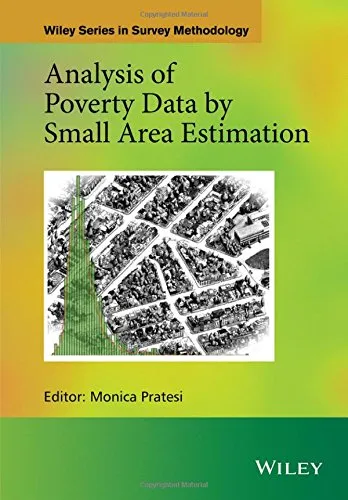


![Statistics: The Art and Science of Learning from Data [RENTAL EDITION]](https://s3.refhub.ir/images/thumb/Statistics__The_Art_and_Science_of_Learning_f_9188.webp)
